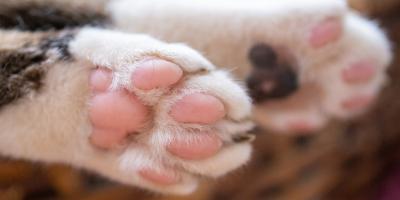Cat Sneezing a Lot? Here's Why Your Cat is Sneezing


One or two sneezes from your cat at a time is totally normal. If they launch into a full fit or are sneezing more than usual, however, it may be worth investigating.
So, if you find yourself asking, Why does my cat keep sneezing?, it’s good to know there are a variety of potential reasons your cat is sneezing a lot, from bothersome smells/irritants to infections to cancer.
Since excessive cat sneezing can indicate a health issue, take note of it and reach out to your veterinarian if you notice your cat sneezing a lot.
Why is My Cat Sneezing?
Like humans, cats need to clear their nasal passages of irritants like dust or stray hair, or aggravating smells, like cleaning products, which can also cause sneezing. As such, the occasional sneeze is to be expected and no cause for alarm.
Cat sneezing fits – where one sneeze is followed by several more – or frequent sneezing over the course of several days can be caused by allergies. This warrants a trip to the veterinarian, especially if any other symptoms are present.
If it is allergies, your cat’s sneezing may be caused by outdoor or indoor irritants. Common allergens include cigarette smoke, some household cleaners, dust or indoor pests.
“If sneezing is accompanied by watery eyes, nasal discharge or a decrease in appetite, this could indicate a viral infection,” says Dr. Emily Cross, DVM, DAVBP (canine/feline). “Congestion can affect your cat’s appetite since they may not be able to smell their food well.”
Sneezing paired with green mucous around the nose or eyes may signal the presence of a more significant infection that may contain bacteria. Again, consult your veterinarian as soon as possible if these symptoms develop. They may prescribe an antibiotic if appropriate.
If the sneeze is accompanied by smelly breath and/or facial swelling, there may be an underlying dental problem, such as a tooth root infection.
“Dental care is essential to your pet’s health, and it is important to have a dental evaluation at least once a year by your veterinarian any time you suspect an issue,” says Dr. Cross.
Common Causes of Cat Sneezing
- Infections: Sneezing can result from a wide range of potential viral, fungal, bacterial or parasitic infections. If you’re concerned your cat may have an infection, your veterinarian can diagnose the cause and find the proper treatment.
- Irritants: Noxious odors, household solvents and other chemicals, dust and allergens can irritate the membranes of your cat's nose and induce sneezing. If you believe solvents or chemicals are causing your cat discomfort, remove them from the environment.
- Oral Disease: Excessive sneezing can sometimes be a sign of dental disease. Other symptoms of dental disease besides sneezing include bad breath, lack of interest in food, favoring one side of their mouth while chewing, sensitivity around the mouth and drooling.
- Cat Flu: Like their owners, cats can get the flu, which can cause symptoms like nasal or eye discharge, fever, loss of appetite, dehydration and sneezing.
- Foreign Body Obstructing the Nasal Passage: Obstructions of the nasal duct can happen when a foreign object enters your cat's nostril and gets stuck. Along with watery eyes, breathing difficulty, bloody noses and sneezing.
- Tumors or Growths: Polyps, growths and tumors can cause a range of symptoms, including nasal or facial swelling, vision problems, bad breath, nosebleeds, discharge from the nose or eyes, along with sneezing. If you’re concerned your cat may have a nasal tumor, make an appointment with your veterinarian immediately.
How to Help Alleviate Cat Sneezing
If your cat has allergies, they may continue to sneeze until you reduce or eliminate the allergens causing their reaction. You can try using HEPA filters, which help capture small dust particles and more.
Take note of when the sneezing occurs and work to eliminate suspected irritants from your home. For example, if your cat sneezes after you’ve cleaned your bathroom, try switching cleaning products.
Dr. Cross suggests switching to a low dust filter or litter alternative if your cat seems to sneeze after using the litter box.
Anytime persistent sneezing occurs, work with your veterinarian to rule out underlying causes.
Cat sneezing is common and shouldn’t worry cat owners too much. Feel free to “ooh” and “ahh” over the occasional adorable sneeze all you want. Always watch for other symptoms, though, and contact your veterinarian with any questions about your cat’s health.
Visit our pet expertise page for more pet care tips from our experts.
Related articles

Unlock Cat Health Insights with Petivity
The Smart Litter Box Monitor tracks your cat’s litter box behavior & weight—and alerts you when changes could require a vet visit.






